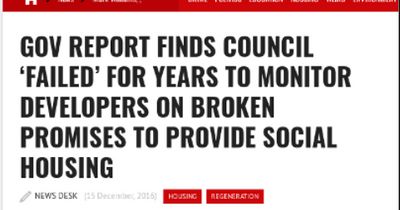
Developers and housing associations are failing to provide the level of affordable housing agreed in planning consents and charging up to 80% market rent for homes approved as social rent.
In some cases housing associations have been found selling affordable housing on the open market in 'sham transactions' and in others developers have simply failed to provide any of the affordable housing that it had agreed to when their planning applications were approved.
Background
In 2016, Southwark Council rejected our complaint that affordable homes secured from private developments weren't in fact being delivered, Southwark's Director of Planning saying ‘Southwark Council has appropriate safeguards in place and has not failed in its duties .. therefore your compliant is not upheld".
We made the complaint after discovering that Neo Bankside, a high-profile development next to the Tate Gallery, had only delivered 62 of the 94 social rented homes required by the planning approval. The story was taken up by the Guardian.
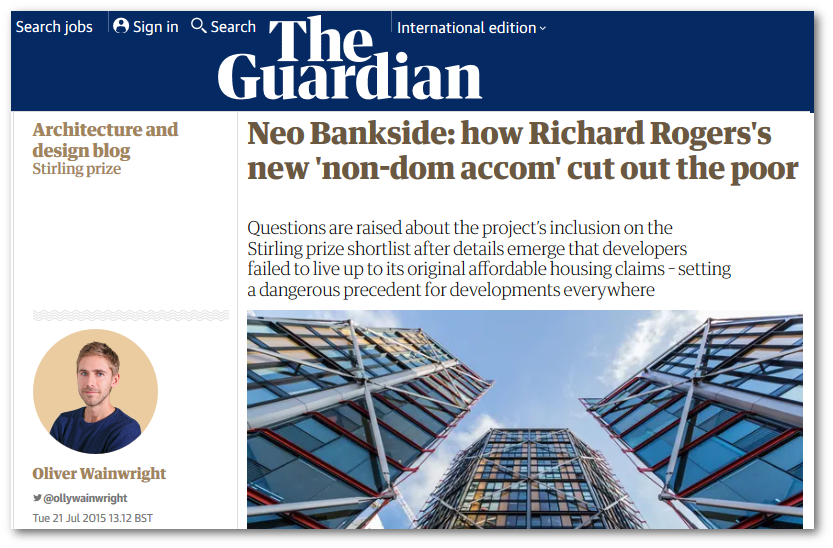 Guardian article including our findings at the Neo-Bankside development
Guardian article including our findings at the Neo-Bankside development
We were later contacted by a resident living at the Signal building, a new development at Elephant & Castle, who was confused about an affordable housing tenant pack put through his letterbox. He was concerned that a similar trick had been pulled by the developer of his building, as he was paying market rent for his flat. He asked if we knew how to find out if his flat was supposed to be one of the 11 affordable homes in the building and what implications that would have.
We told him that we had no way of knowing whether his home was one of the 11 affordable units and advised him to contact the Council.
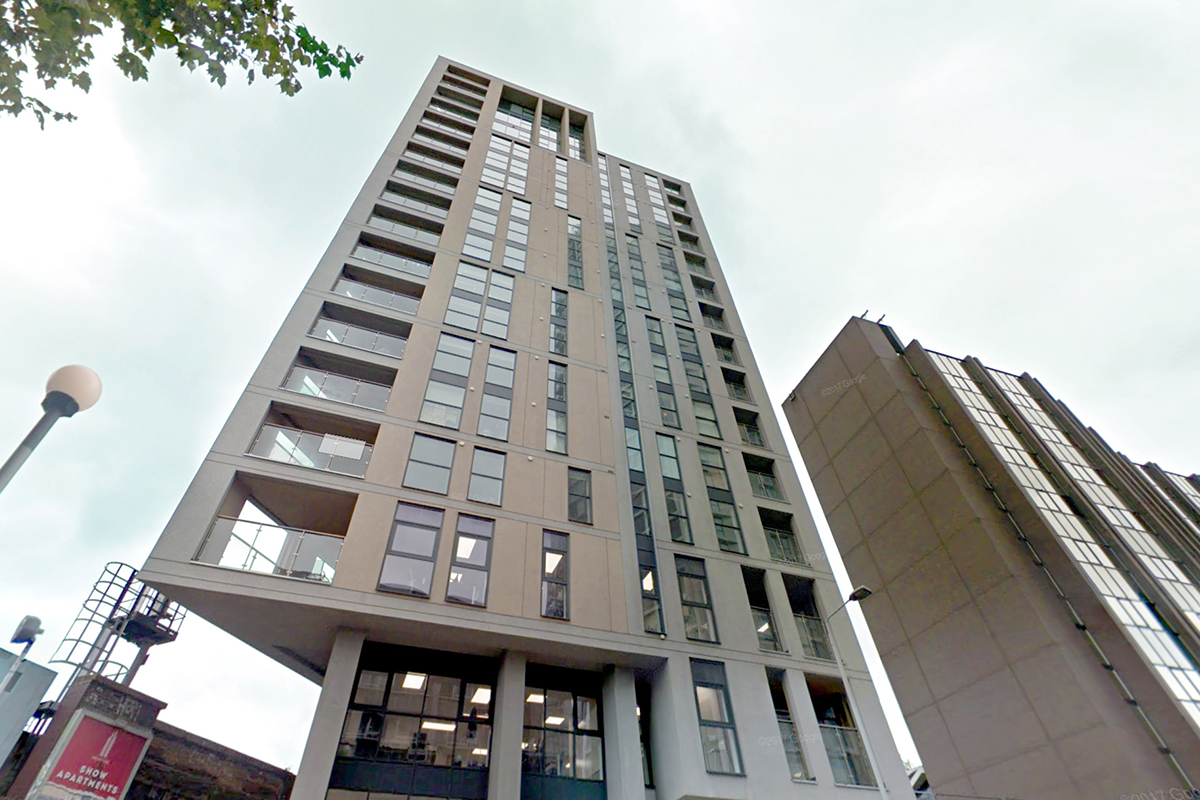 The Signal Building at Elephant & Castle where affordable homes were let at market rent and then sold on the open market
The Signal Building at Elephant & Castle where affordable homes were let at market rent and then sold on the open market
Sham transactions
It later emerged that the housing association concerned had sold these and other affordable homes on the open market. The resulting court case, brought by Southwark Council claimed that these involved 'sham transactions'.
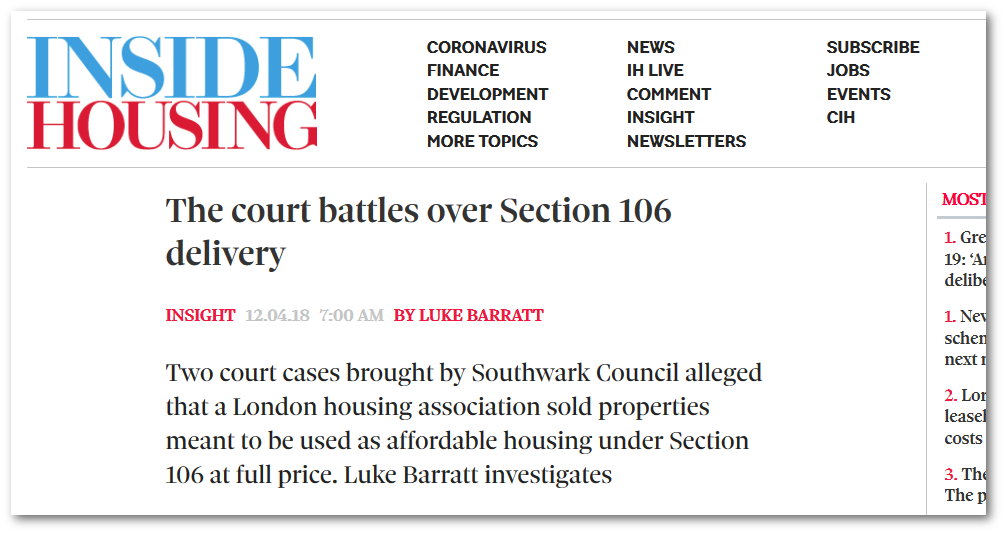 https://www.insidehousing.co.uk/insight/insight/the-court-battles-over-section-106-delivery--56141
https://www.insidehousing.co.uk/insight/insight/the-court-battles-over-section-106-delivery--56141
Given these examples of where there appeared to be no control over affordable housing delivery, we checked the Council's choice-based letting system for social housing and found homes approved as social rent being let at more than twice social rent levels.
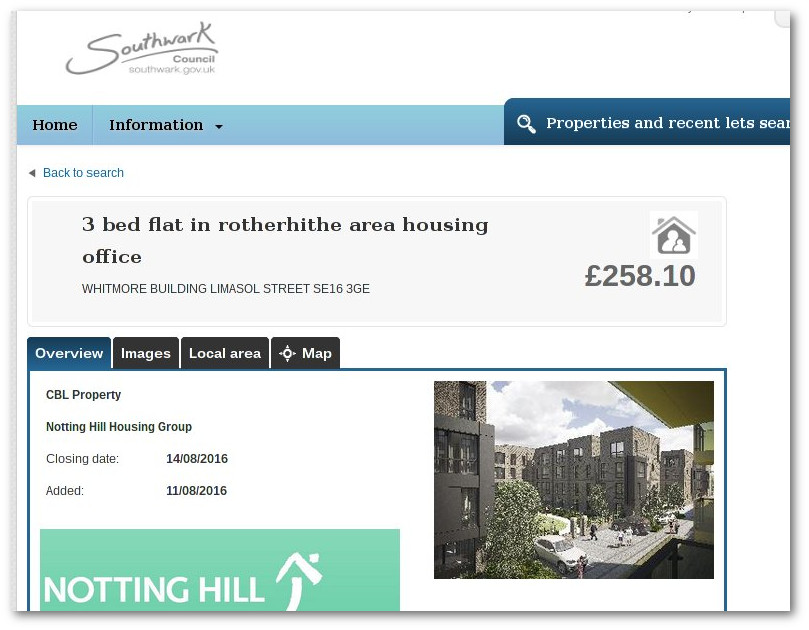 Extract from the Council's lettings system for households on its waiting list
Extract from the Council's lettings system for households on its waiting list
We then cross-checked planning committee reports with section 106 agreements, Land Registry information, the GLA affordable housing outturn dataset and the government's CORE lettings data. From this we compiled a long (but by no means exhaustive) list of 46 schemes which indicated that there had been a potential breach in provision, involving a total of 1,145 social rented homes. We submitted these to the Council as evidence that it was not getting the affordable housing it should be and asked them to investigate. The evidence we submitted showed that homes which should have been social rent were being delivered instead at 'affordable rent' of up to 80% market rent.
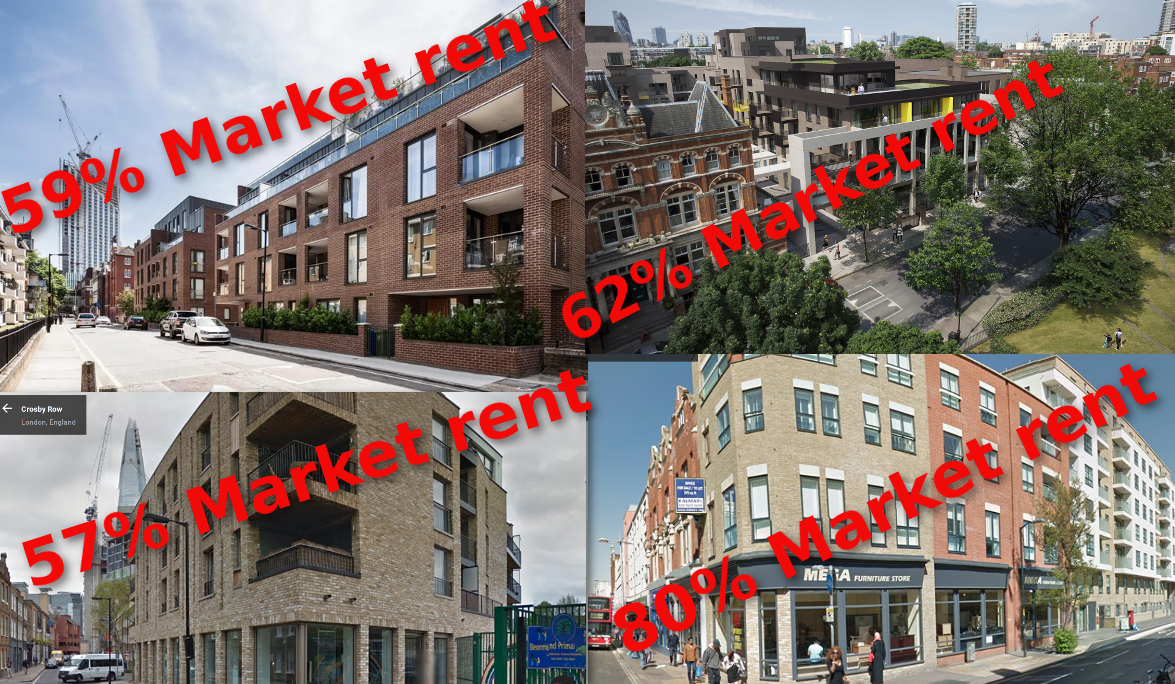
The Ombudsman
When Southwark rejected our complaint we referred the matter to the Local Government Ombudsman and in November 2016 he published a damning report stating that Southwark didn't actually have ANY procedures for monitoring the delivery of affordable housing. In response, Southwark undertook to introduce monitoring procedures and conduct an audit of all the section 106 affordable housing in the borough.
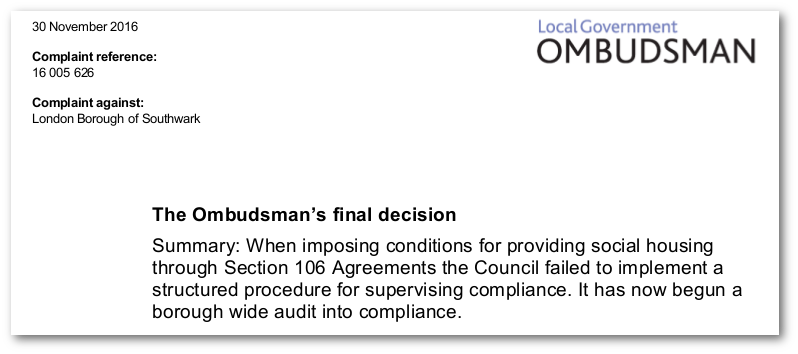
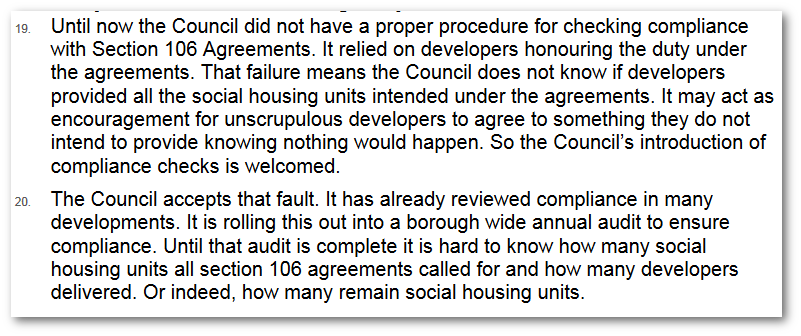
The bungled audit
Southwark has since conducted a so-called audit and superficially it looks good, but it still relies on trusting housing associations to volunteer information and on closer examination the numbers don't add up.
Starting on the landing page, it's immediately clear that the figures for the three categories of affordable housing (social rent, intermediate, affordable) do not add up to the number of total homes.
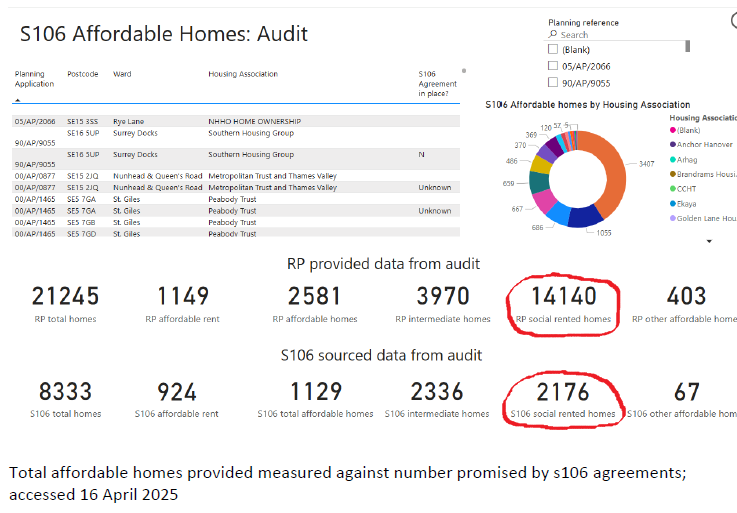
What should have been delivered is determined by all the legal s106 agreements that developers sign with the Council. The s106 data provided by the registered provider shows that 21,245 have been provided, whereas the number of homes that the s106 agreements say should be provided is 8,333 – a difference of 12,912 homes.
The figures for the five categories of affordable housing show similar large differences . The difference for social housing is particularly striking; the registered provider provided data shows that they have provided 14,140 social rented homes, while the s106 agreements only require that they provide 2,176 – a massive difference of 11,964 homes which, if it is to be believed, means that private developers and their registered providers partners have delivered over six times more social-rented housing than they were required to!
Also, when drilling down into the individual tables behind the visualisation (by clicking on 'show data table') two immediate problems appear: First, there is no column saying what tenure the affordable home should have been provided as under the section 106 agreement; secondly, in some cases the rent levels for social rent are more than twice as high as they should be:
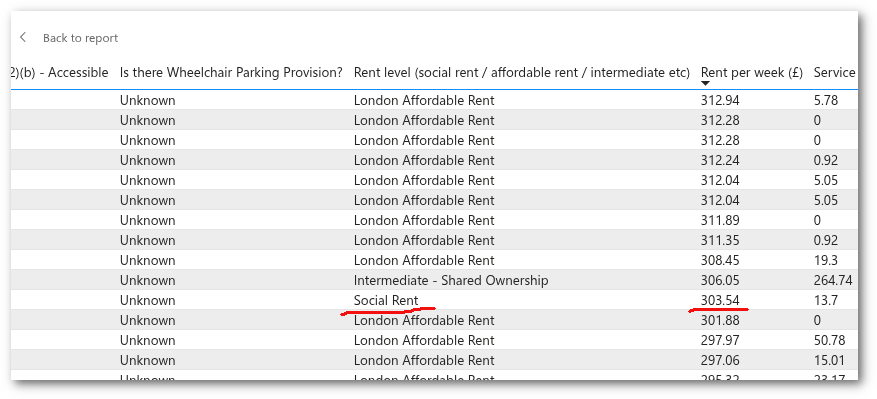
Why no enforcement action?
Furthermore, where breaches have been uncovered by the audit, no enforcement action has been taken. Here are some of the more blatant examples:
Lock House, (15/AP/0426) - 41 unit scheme on Rope Street at Rotherhithe Docks SE16.
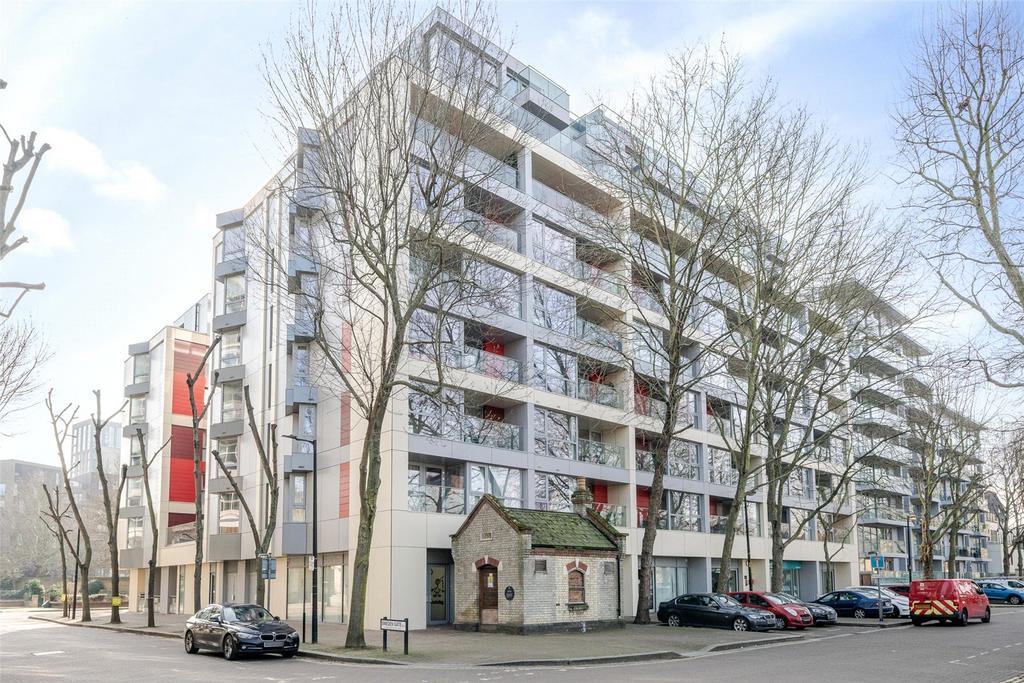
The S106 agreement required 15 affordable housing units: 12 for social rent and 3 as shared ownership. It has in fact only delivered 13 shared ownership units. This 2 fewer units than required, and a large under-delivery of much-needed social-rented homes.
22 Amelia Street (07/AP/0650) - 164 unit scheme at Elephant & Castle.

The S106 agreement requires 67 affordable homes of which at least 49 at social rent. It has in fact provided just 38 affordable homes: 23 social rent units, 14 intermediate, and 1 affordable rent.
Heygate estate (12/AP/1092) - 2,924 unit scheme at Elephant & Castle.
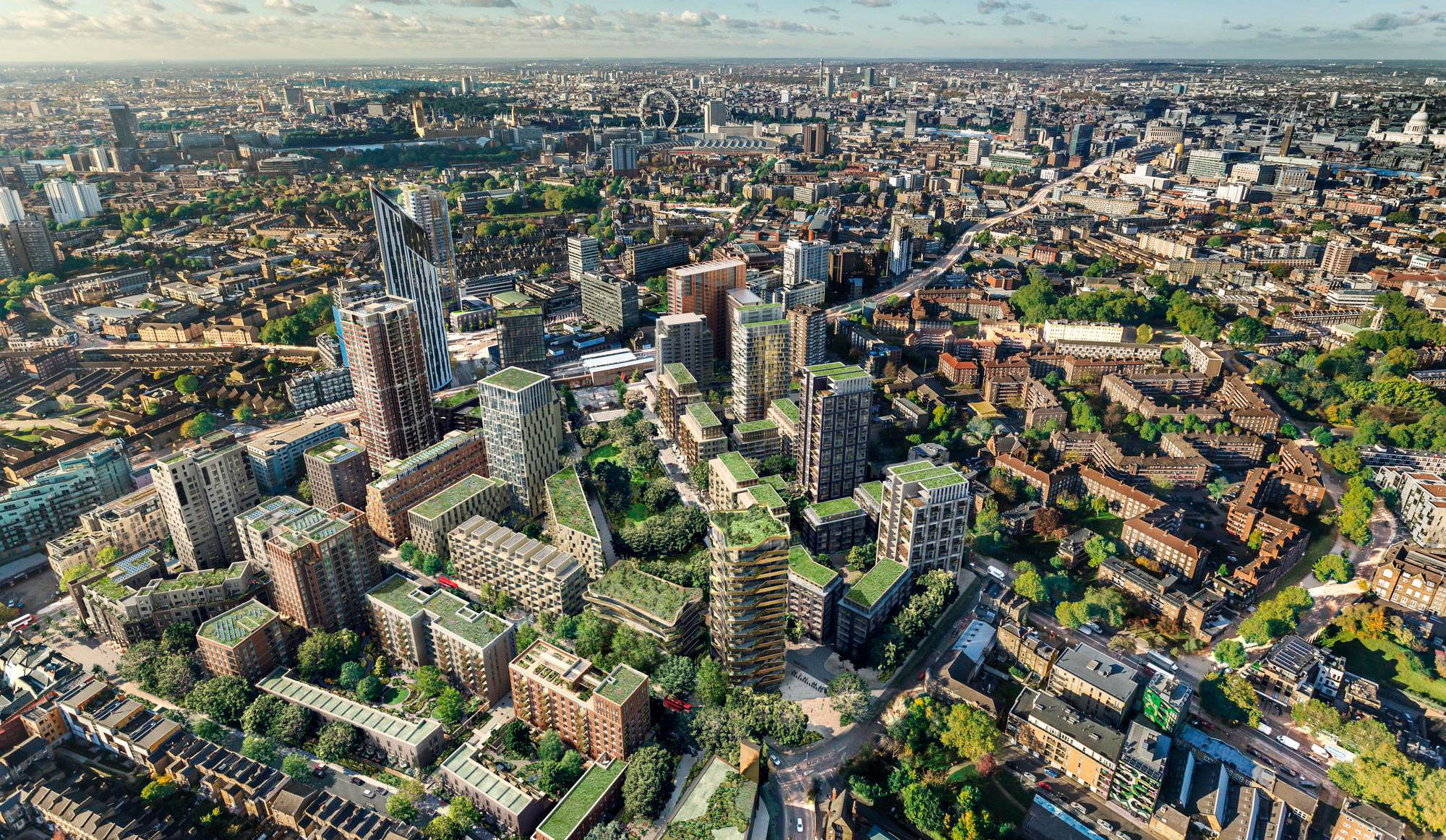 The Heygate redevelopment scandalously required just 92 social rented homes but the audit confirms that only 72 have been provided
The Heygate redevelopment scandalously required just 92 social rented homes but the audit confirms that only 72 have been provided
Aylesbury estate redevelopment phase 1 (14/AP/3717)
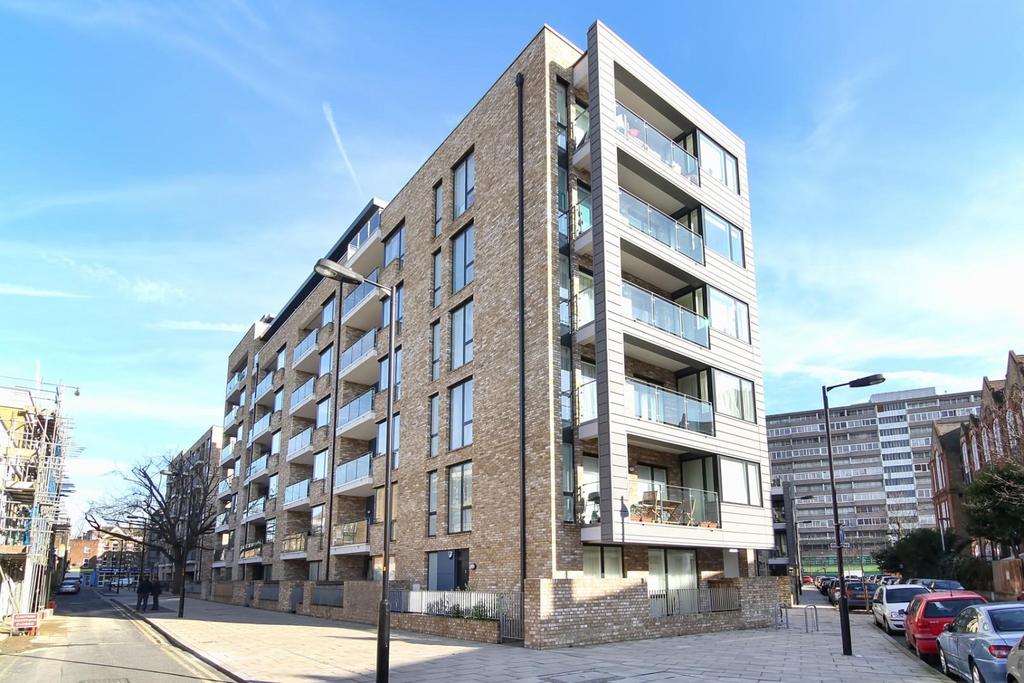 The audit confirms that of the 134 affordable homes required in this phase, only 123 have been provided.
The audit confirms that of the 134 affordable homes required in this phase, only 123 have been provided.
Bermondsey Spa regeneration (phase 3, sites E-U) (04/AP/0102)
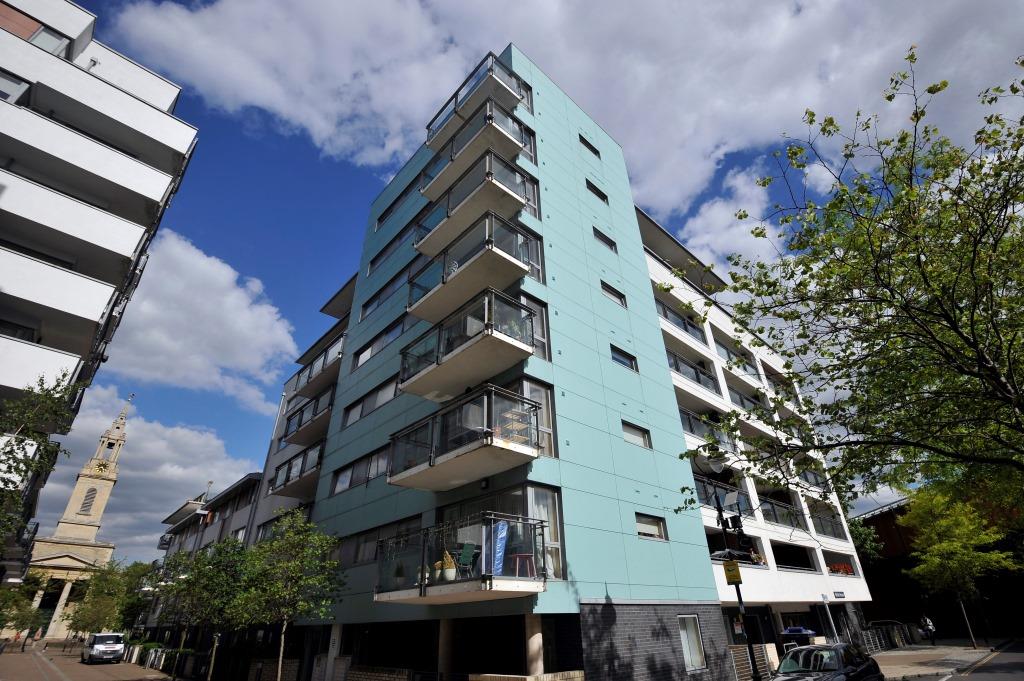 The audit confirms that of the 202 social rented homes required, only 196 have been provided.
The audit confirms that of the 202 social rented homes required, only 196 have been provided.
Strata Tower (05/AP/2502)
 The s106 requires delivery of 79 shared ownership units, and 20 ‘Retained Equity Units’ for displaced Heygate Estate tenants. The audit shows that just 67 affordable homes have been provided - all of which shared ownership.
The s106 requires delivery of 79 shared ownership units, and 20 ‘Retained Equity Units’ for displaced Heygate Estate tenants. The audit shows that just 67 affordable homes have been provided - all of which shared ownership.
Canada Water Regeneration site A (09/AP/1870)
 The s106 agreement from 2010 requires 170 affordable housing units on Site A, and Schedule 4 sets out the tenure split of 143 ‘Rented’ and 27 Shared Ownership. The audit shows that only 161 have been provided, of which only 123 social rent.
The s106 agreement from 2010 requires 170 affordable housing units on Site A, and Schedule 4 sets out the tenure split of 143 ‘Rented’ and 27 Shared Ownership. The audit shows that only 161 have been provided, of which only 123 social rent.
Wansey Street (04/AP/2114) - Heygate replacement housing site.
 The planning consent required 16 units to be social rent, and 3 to be shared ownership. The audit shows that just 12 have been provided as social rent and 4 as intermediate affordable housing
The planning consent required 16 units to be social rent, and 3 to be shared ownership. The audit shows that just 12 have been provided as social rent and 4 as intermediate affordable housing
Canada Water Regeneration site D (01/AP/1095)
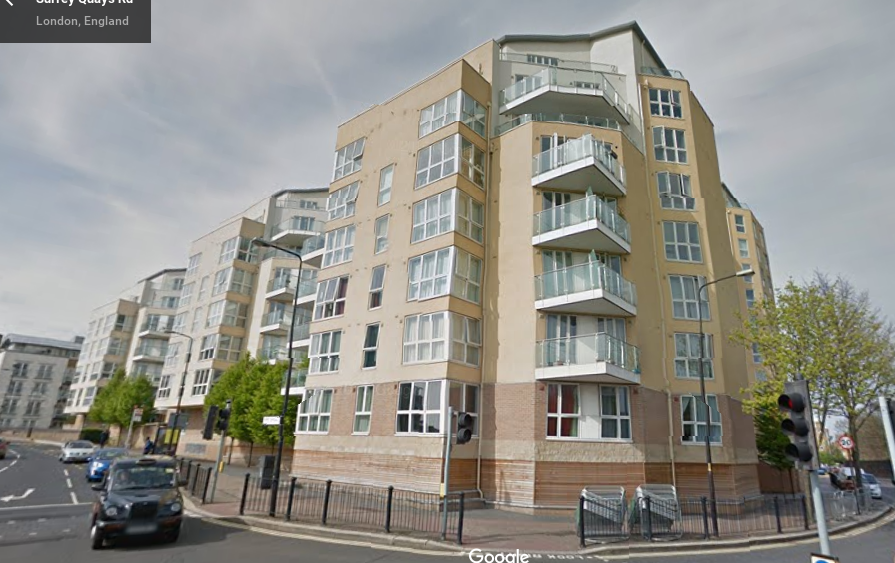 The planning consent requires 34 social rented and 18 shared ownership homes. The audit shows that only 29 social rented homes have been provided.
The planning consent requires 34 social rented and 18 shared ownership homes. The audit shows that only 29 social rented homes have been provided.
Bombay Street, Bermondsey (17/AP/0296)
 This scheme required 7 affordable housing units, all of which shared ownership. The developer failed to deliver any affordable housing and has sold some of units designated as such.
This scheme required 7 affordable housing units, all of which shared ownership. The developer failed to deliver any affordable housing and has sold some of units designated as such.
Blakes Road, Peckham (04/AP/1601)
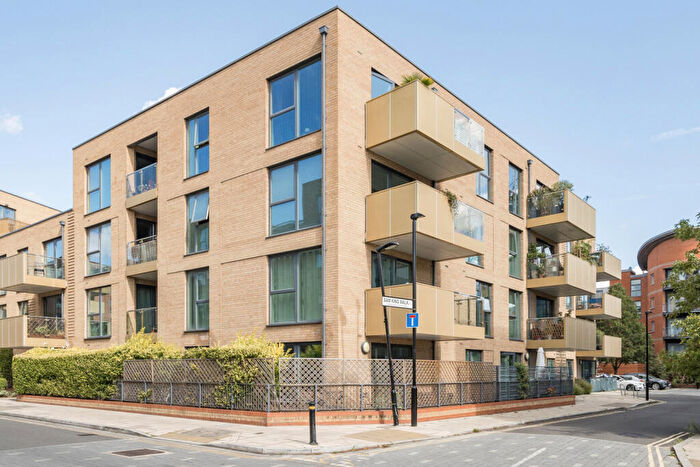 The audit confirms that there are '16 social rented units missing'
The audit confirms that there are '16 social rented units missing'
There are dozens of further cases where affordable rent of up to 80% has been provided instead of social rent, but Southwark has long been turning a blind eye to this sleight of hand.
Southwark, in its efforts to be developer friendly and encourage them to 'Build, Build, Build!', doesn't appear to be bothered whether what gets built corresponds to what was approved by its planning committee.
Its response so far has been that enforcement action would be costly and not worth the bother for a few homes here and there. We argue that for every single social rented home not provided, the Council bears the cost of private temporary accommodation for a family on its waiting list. This is currently £200 per family per night, amounting to £37m per year.
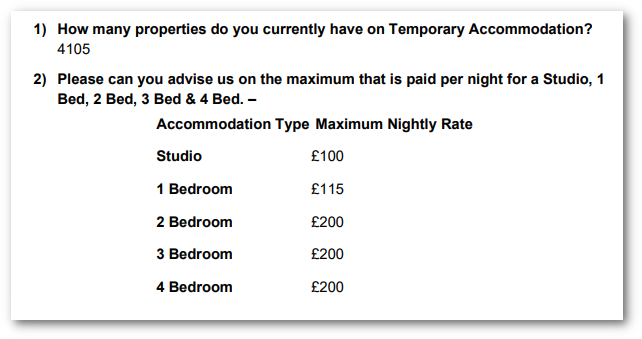
We call on the Council to take immediate enforcement action on each and every social rented home that has not been provided under section 106 agreements.